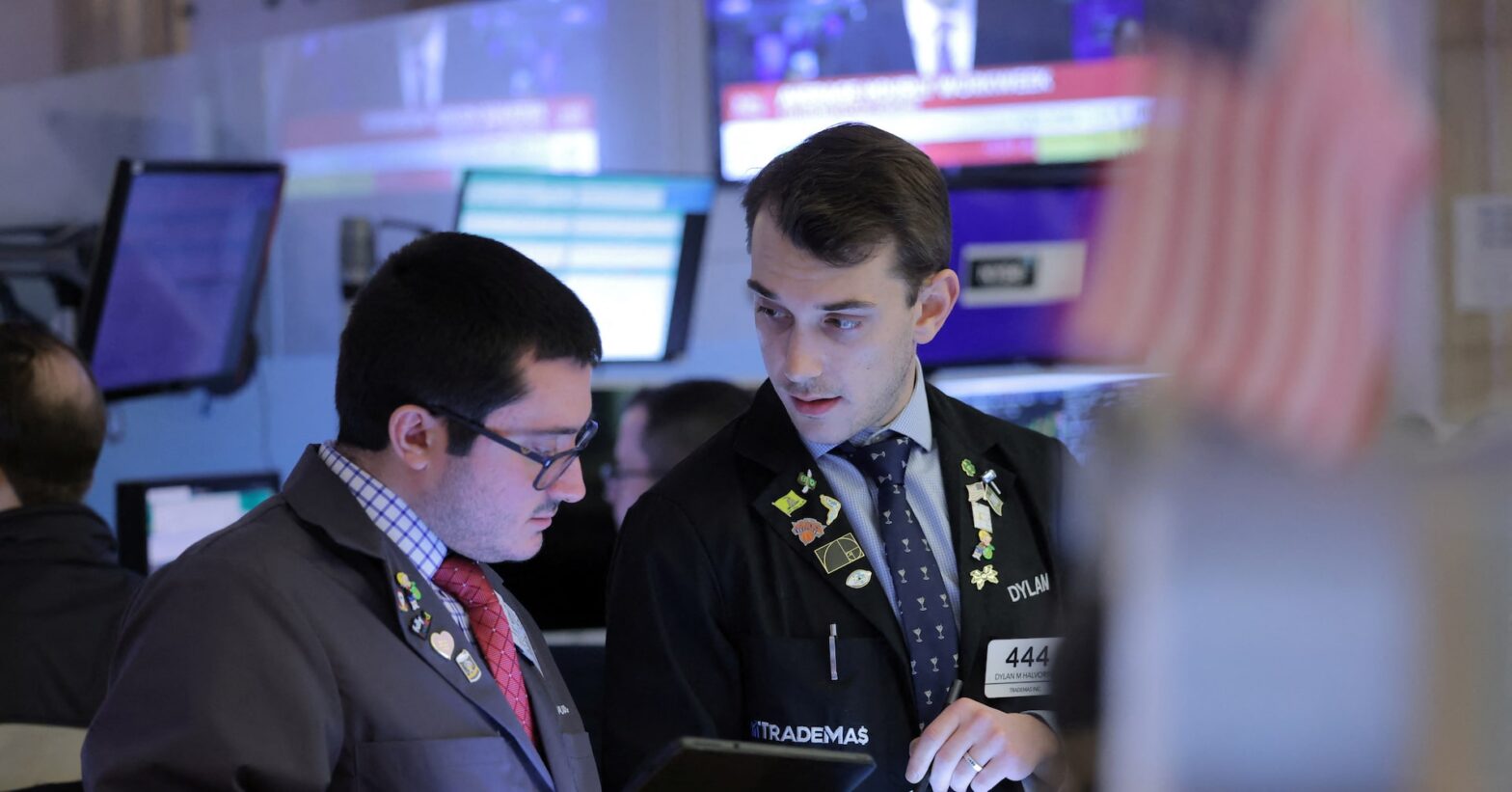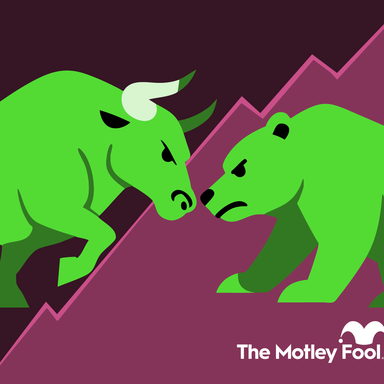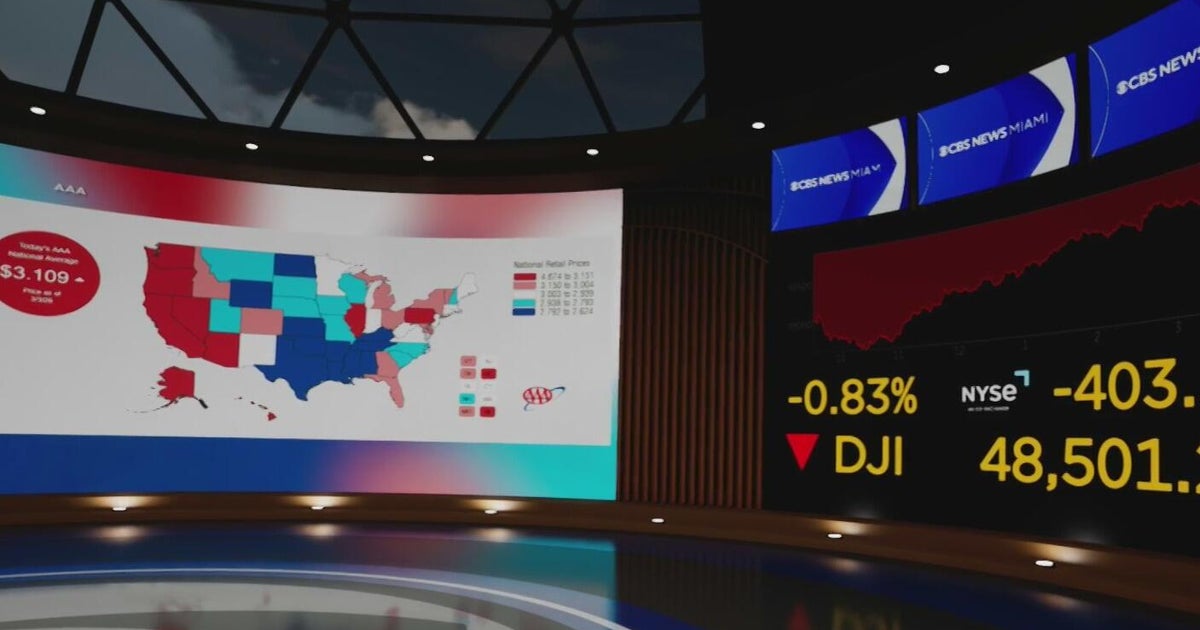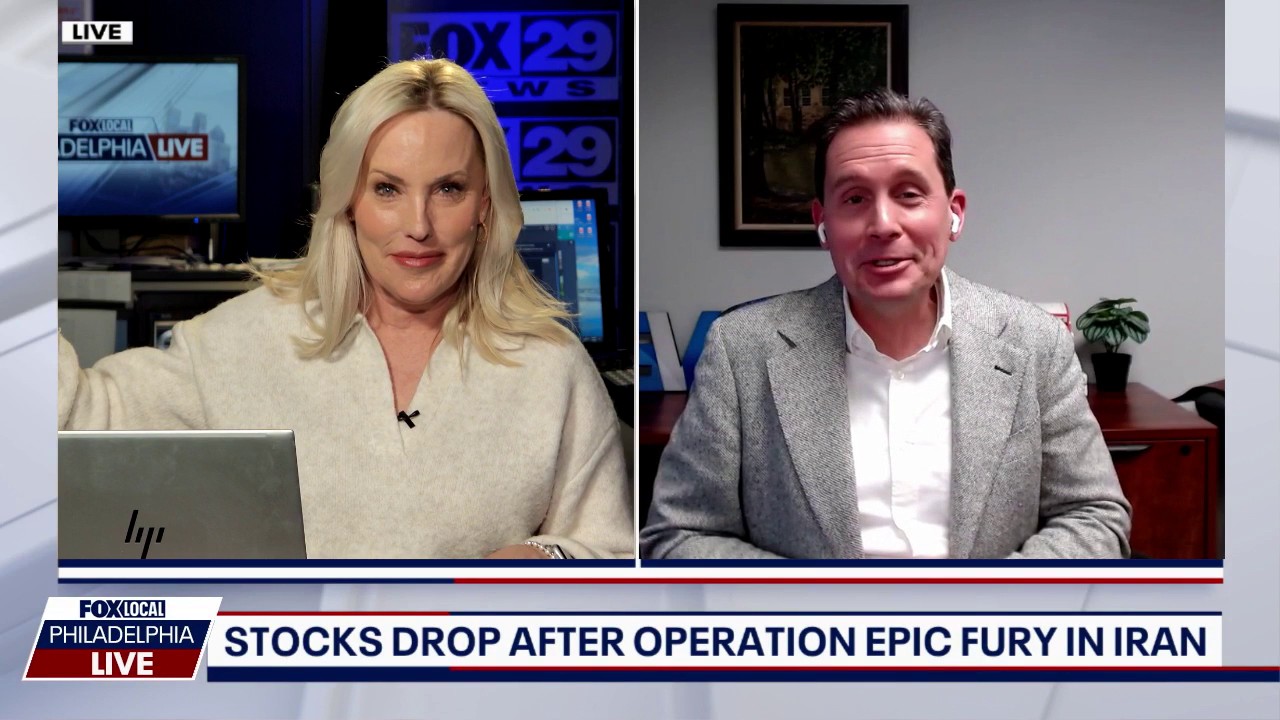Item 1 of 3 Traders work on the trading floor at the New York Stock Exchange (NYSE) in New York City, U.S., April 5, 2024. REUTERS/Andrew Kelly/File Photo
[1/3]Traders work on the trading floor at the New York Stock Exchange (NYSE) in New York City, U.S., April 5, 2024. REUTERS/Andrew Kelly/File Photo Purchase Licensing Rights, opens new tab
NEW YORK, April 19 (Reuters) – The Nasdaq and the S&P 500 closed sharply lower on Friday and Treasury yields dipped as investors juggled lackluster earnings, uncertainties surrounding central bank policy and geopolitical strife.
Gold and crude oil prices advanced as market participants kept an uneasy eye on unfolding turmoil in the Middle East.
The Dow was the lone gainer among the three major U.S. equity indexes, while the Nasdaq, weighed down by megacap tech and tech-related momentum stocks, slid 2.05%.
The session marked six straight daily declines for the S&P 500 and the Nasdaq, the longest losing streak since October 2022.
The S&P 500 and the Dow registered their steepest weekly percentage losses since March 2023, while the Nasdaq saw its largest weekly drop since November 2022.
Mounting tensions in the Middle East appeared to plateau after Tehran downplayed Israel’s retaliatory drone strike against Iran, a move that seemed geared toward averting regional escalation.
“The level of concern in the Middle East is higher than it was at any time since Oct 7,” said Peter Tuz, president of Chase Investment Counsel in Charlottesville, Virginia. “It’s close to the forefront of a lot of peoples’ minds.”
While first-quarter reporting season is still in its early stages, expectations have dimmed. Analysts now see aggregate S&P 500 earnings growth of 2.9% year-on-year, down from the 5.1% estimate on April 1, according to LSEG.
“Next week is a big tech earnings week and that’s probably prompting some selling,” Tuz added. “Those stocks have done so well until relatively recently and I think some money is flowing out of them just out of concern that earnings and guidance won’t meet expectations.”
Chicago Federal Reserve President Austan Goolsbee said on Friday that the Fed’s restrictive policy is “appropriate” given economic strength and the slower-than-expected process of bringing inflation down closer to its 2% target.
The Dow Jones Industrial Average
rose 211.02 points, or 0.56%, to 37,986.4, the S&P 500
lost 43.89 points, or 0.88%, to 4,967.23 and the Nasdaq Composite
dropped 319.49 points, or 2.05%, to 15,282.01.
European shares touched their lowest level in more than a month but closed well off their intraday trough as anxieties over strife in the Middle East eased and solid earnings provided some support.
The pan-European STOXX 600 index
lost 0.08% and MSCI’s gauge of stocks across the globe
(.MIWD00000PUS), opens new tab
shed 0.84%.
Emerging market stocks lost 1.30%. MSCI’s broadest index of Asia-Pacific shares outside Japan
(.MIAPJ0000PUS), opens new tab
closed 1.61% lower, while Japan’s Nikkei
lost 2.66%.
Treasury yields inched lower as investors favored safe-haven assets due to potential broadening of the Middle East conflict.
Benchmark 10-year notes last rose 6/32 in price to yield 4.6228%, from 4.647% late on Thursday.
The 30-year bond last rose 14/32 in price to yield 4.7168%, from 4.745% late on Thursday.
The dollar was last essentially flat as currency markets calmed down after a flight to the Swiss Franc and the yen in the wake of Israel’s drone attack on Iran.
The Japanese yen strengthened 0.02% versus the greenback at 154.63 per dollar. Sterling was last trading at $1.2371, down 0.51% on the day.
Crude oil prices dipped earlier as supply concerns eased in the wake of Iran’s subdued response, reversed course and settled modestly higher amid lingering uncertainties arising from geopolitical instability.
U.S. crude rose 0.50% to settle at $83.14 per barrel, while Brent settled at $87.29 per barrel, up 0.21% on the day.
Gold advanced, putting the safe-haven metal on track for its fifth straight weekly gain.
Spot gold added 0.4% to $2,386.49 an ounce.
Get a look at the day ahead in U.S. and global markets with the Morning Bid U.S. newsletter. Sign up here.
Reporting by Stephen Culp; Additional reporting by Huw Jones in London; Editing by Richard Chang, Andrew Heavens and Cynthia Osterman
Our Standards: The Thomson Reuters Trust Principles., opens new tab
















